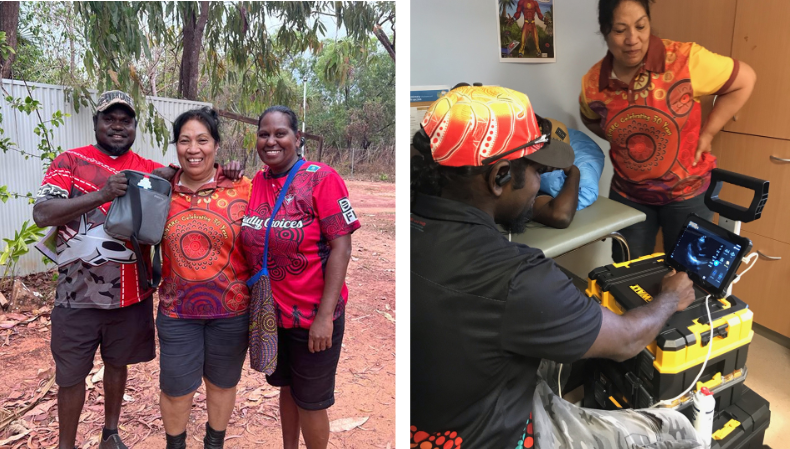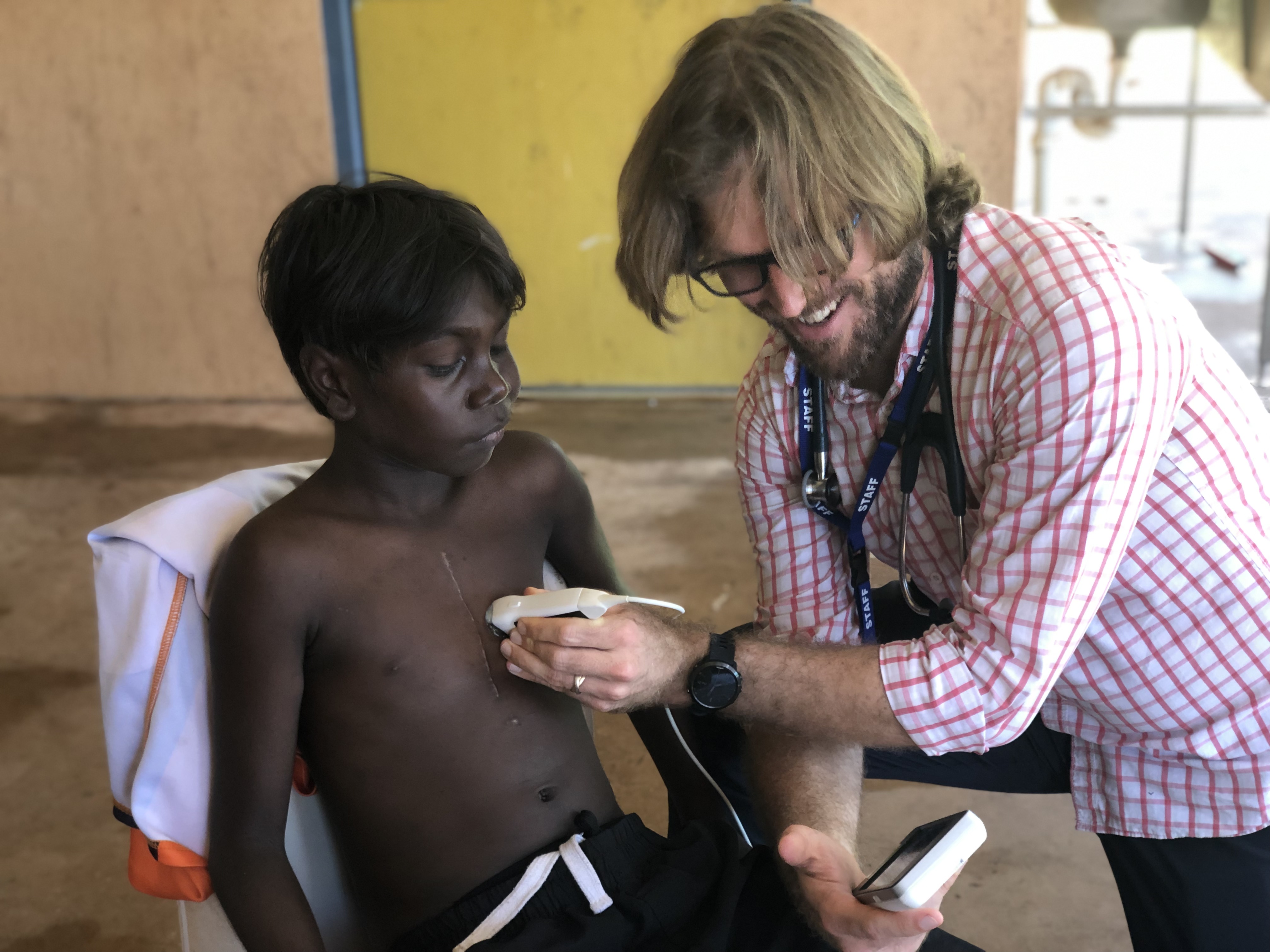Rheumatic Heart Disease (RHD) is rare in most wealthy countries but affects children in remote communities in Australia at extremely high rates. Tragically, because of this preventable disease, some children develop severe heart failure requiring open heart surgery, and sadly, some die. The lifelong impact of this childhood disease can be devastating.
Since 2018, the Humpty Dumpty Foundation has supported remote First Nations communities with lifesaving medical equipment that helps local health workers detect the early signs of RHD. In 2023, the investment in this innovative, community-led approach is scaling up and impacting Aboriginal and Torres Strait Islander children across Northern Australia through a Menzies School of Health Research (Menzies) project.
 (L) Roy, Ana & Cassie with the new Lumify scanning device; (R) Jaydn & Anna scanning for RHD with the Lumify
(L) Roy, Ana & Cassie with the new Lumify scanning device; (R) Jaydn & Anna scanning for RHD with the Lumify
In the past, children routinely required admission to a hospital that was often hundreds of kilometres away from home to access the expertise and equipment needed to make an RHD diagnosis. Now, this is changing thanks to leadership from within communities, support from Humpty and its generous donors, and the guidance of experts from Menzies School of Health Research.
Working together, we have proven that it is possible to use small, handheld ultrasound machines to do a simple echo test that shows the heart valves and can pick up the signs of RHD. Aboriginal health practitioners, nurses, and GP doctors can learn the skills required to get good echo images and upload them to the internet for a cardiologist to review remotely.
Because we know this can work, we are committed to making it work!
Generous donations from Glencore and the Commonwealth Government meant that 20 additional Philips Lumify handheld ultrasound devices have been purchased in 2023. These devices are going straight into the hands of health workers in remote communities as part of the NEARER SCAN project, funded by Humpty and Medical Research Futures Fund.
The Menzies-led NEARER SCAN project is bringing the diagnosis of RHD closer to home. Children can now be diagnosed with RHD in their remote clinic or even in their own backyard. This accessibility to testing has the potential to result in early diagnosis and treatment for children, which can save their lives and prevent them from ever getting heart failure or from ever needing open heart surgery.
 Assoc. Professor Josh Francis implementing the NEARER SCAN project in the NT
Assoc. Professor Josh Francis implementing the NEARER SCAN project in the NT
The impact on children who can now access an earlier diagnosis of RHD is enormous. The investment in training means that the effects will be sustained and continue to grow. It has been incredibly exciting to see the enthusiasm of Aboriginal health practitioners from different places across the Northern Territory and Western Australia as they come together in a community of practice, learning and working together to change the trajectory of this terrible disease in their communities. Some have been personally affected by the disease, and all have families who have experienced how devastating it can be. The motivation is huge, and the vision is to see every at-risk child get the opportunity to be checked with a scan close to home.
The NEARER SCAN project is about more than just getting equipment out to the places that need it most.
It is about implementing strategies that have the best chance of amassing a sustained and lasting impact on health services and the children in remote communities who need them.
Menzies has been working closely with community leaders to co-design these strategies, which means that the way that NEARER SCAN gets implemented in each place might look slightly different. Communities get to lead on the decisions about who should be trained, how and where that should happen, and planning together for when, where and how the scanning will take place. The overall objective is to build up the skills of the local health workforce and make echo scanning for detecting rheumatic heart disease as accessible as possible.
Using the lessons learned from the NEARER SCAN project, Menzies will work with communities and other stakeholders in the health sector to develop plans to scale up. This way, other affected communities can get involved to ensure more children with RHD have access to a scan nearer to home and early enough to detect it while it is still treatable.
We have already seen lives changed due to this world-leading work to find and treat children with life-threatening RHD. And the job has only just begun. Together, we can end rheumatic heart disease in this country.
By A/Prof Joshua Francis
Menzies School of Health Research